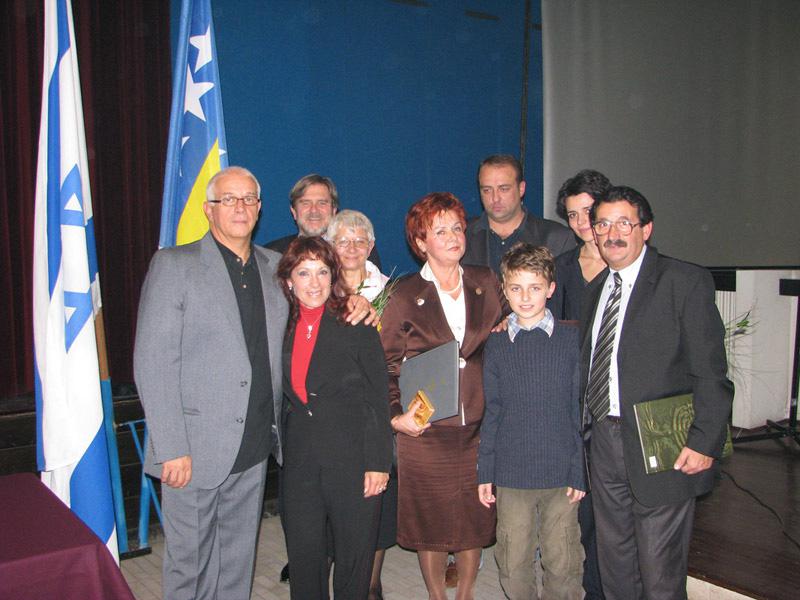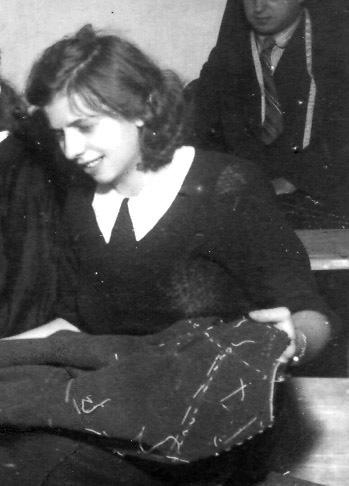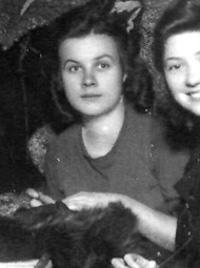





Sunday to Thursday: 09:00-17:00
Fridays and Holiday eves: 09:00-14:00
Yad Vashem is closed on Saturdays and all Jewish Holidays.
Entrance to the Holocaust History Museum is not permitted for children under the age of 10. Babies in strollers or carriers will not be permitted to enter.






On the eve of the German invasion of Yugoslavia in April 1941, two young women worked in the beauty parlor owned by Mordo Albahari, a Sarajevo Jew: Roza Sober, a Christian of 19, and Zekira Besrević, a Muslim of about 20. Mordo’s niece, Gracija Kamhi (later Džamonja), was an apprentice in the establishment.
Under the Ustaša regime in the Independent State of Croatia, Jews, Serbs, and Gypsies were brutally persecuted. The Jews’ plight became more severe with each passing day, as new edicts constantly undermined their legal and economic status, making them wear a yellow patch, do forced labor, and endure other humiliations. This was followed by deportations to the camps: Djakovo, Loborgrad, and the worst of all, Jasenovac, in Croatia.
One night the Kamihi family was taken. Only Gracija and her uncle, Mordo, succeeded in evading the troops by hiding in their large apartment. Hearing about the Aktion, Roza and Zekira rushed to the Albahari home to see if they could help. They saw Gracija’s family being taken away, but Gracija’s mother managed to whisper to them, “They are upstairs”. The two young women waited until the Ustaša unit had left, then ran upstairs to bring out Gracija and her uncle and take them to their home.
In the wake of a proclamation by the authorities allowing citizens to take over Jewish businesses, Zekira asked for Albahiri’s beauty parlor. Her request was approved, and she and Roza, became the establishment’s new managers. They immediately brought Gracija and her uncle to the shop. The two hid by day, but at night were free to move about the premises and partake of the food brought to them by the two young women. This arrangement lasted several months, until Mordo Albahiri obtained “Aryan” papers enabling him and his niece to move to Mostar, which was under Italian occupation. The first attempt failed, but the second was successful. From Mostar they sent false papers for Gracija’s mother and her ten-year-old brother. They all reached the island of Rab, which was under Italian control. Following the German invasion of this zone in September 1943, they joined Tito’s partisans. “Roza Sober-Dragoje did everything possible to rescue all of us,” Gracija wrote in the late 1990s. Gracija fought alongside her boyfriend, whom she later married; he too had fled Sarajevo with the assistance of Roza Sober-Dragoje.
On May 28, 2000, Yad Vashem recognized Roza Sober-Dragoje and Zekira Besrević as Righteous Among the Nations.

Thank you for registering to receive information from Yad Vashem.
You will receive periodic updates regarding recent events, publications and new initiatives.

"The work of Yad Vashem is critical and necessary to remind the world of the consequences of hate"
Paul Daly
#GivingTuesday
Donate to Educate Against Hate


Worldwide antisemitism is on the rise.
At Yad Vashem, we strive to make the world a better place by combating antisemitism through teacher training, international lectures and workshops and online courses.
We need you to partner with us in this vital mission to #EducateAgainstHate
The good news:
The Yad Vashem website had recently undergone a major upgrade!
The less good news:
The page you are looking for has apparently been moved.
We are therefore redirecting you to what we hope will be a useful landing page.
For any questions/clarifications/problems, please contact: webmaster@yadvashem.org.il
Press the X button to continue



